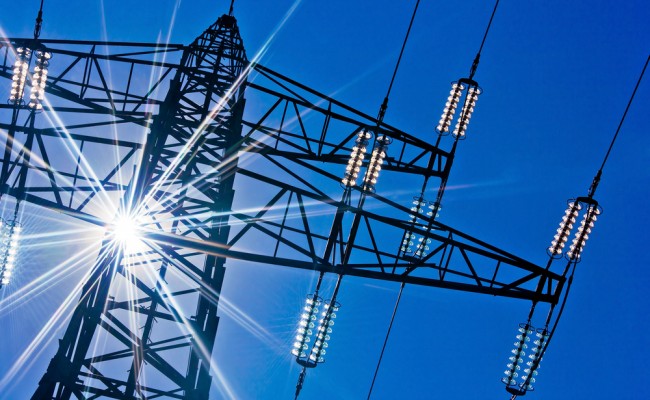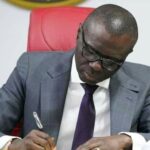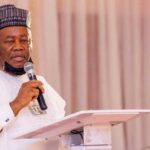The Federal Government earlier this month launched the Nigeria Integrated Energy Planning Tool (IEP). It is said to be the first real attempt to have a tool that harnesses energy resources in the country towards attaining sustainable energy access by 2030, just eight years away. In this piece, Daily Trust analyses the role the IEP tool will play in bridging the estimated 30.6 million electricity connection gap.
The IEP, which was launched on February 3, by Vice President Yemi Osinbajo, identifies the least-cost mix of solutions to meet demand for a variety of energy services.
- Leaders reach common ground to save Nigeria
- Strengthening Nigeria-China relationship for mutual progress
The tool, which also had global leaders in the energy sector in attendance during its launch, integrates electrification, clean cooking and productive uses for Nigeria.
Developed by the FGN in collaboration with Sustainable Energy for All (SEforALL) with support from the Global Energy Alliance for People and Planet and funding from the Rockefeller Foundation, the IEP has online geospatial visualisation platform capacity that could provide real-time energy access data, analysis and results for the public and private sectors.
Speaking at the launch of the tool, Osinbajo said the tool promotes a holistic approach to achieving SDG7 and energy development while also supporting local manufacturing, expanding local solar technology value chains and potentially creating 250,000 new jobs in Nigeria’s energy sector.
Osinbajo urged the international community to support Nigeria’s transition effort with more realistic climate finance support.
Quest to reach 30.6m new connections
According to experts’ analyses of the IEP tool, the least-cost plan for providing universal electrification through grid, mini-grid and solar home systems amounts to $25.8bn. And for Nigeria to achieve universal access by 2030, the tool estimates that 19.3 million additional connections will be required in addition to the expected 11.3m connections in places that already have access to electricity but may witness population growth.
Results of research inputted on the tool showed that a mini-grid represents the least-cost technology for the bulk of these connections (8.9m connections), with grid (5.4m) and solar home system (5m) sharing a similar number of connections between them.
It also states that due to more activities across communities, at least 200,000 mini grids may be needed to meet the energy demand. This may cost about $22.9bn, of which $20bn would be up-front capital investment in solar which has lesser operating cost.
The tool also estimated that around 53 per cent of households in mini-grid settlements and 92 per cent of households in solar home system settlements will require public support to afford to fully own the energy systems.
The IEP tool also visualises clean cooking energy as it targets over 40m households cooking with emissions intensive and polluting cooking methods by 2030.
“To address this, there is an overall opportunity to expand clean cooking solutions to 3.7m households with LPG cooking solutions; 3.5m households with e-cooking solutions; or 4.3m households with biogas cooking solutions. The overall cost of implementing these solutions would be $478m for LPG, $83m for e-cooking and $847m for biogas,” said a note on the platform.
Osinbajo also reiterated President Muhammadu Buhari’s commitment to lifting 100 million people out of poverty and driving economic growth.
“The government is also keen on managing long-term job losses in the oil sector that will result from global decarbonisation, calling on the international community to support Nigeria’s energy access and energy transition efforts through much-needed climate finance commitments,” he noted.
The United Nations Deputy Secretary General, Amina J. Mohammed, said Nigeria was making a bold move towards the Energy Transition Plan that outlines a pathway to net zero by 2060.
She said, “Without prioritising universal energy access, including clean cooking, we will not achieve our global net zero targets. Energy is also critical to achieving multiple Sustainable Development Goals, including improved healthcare, better jobs and livelihoods, and greater gender equality.”
The CEO and Special Representative to the UN Secretary-General (SRSG) for Sustainable Energy for All (SEforALL), Damilola Ogunbiyi, in her comments said: “Nigeria is leading the charge with their ambitious commitment to achieve net zero by 2060. I hope this demonstrates to other countries an invaluable tool for achieving their own energy access goals.”
Speaking on the impact of the IEP tool, President of the Rockefeller Foundation, Dr Rajiv J. Shah, said, “Not only will it advance our efforts to empower millions of people in Nigeria, it will also provide a model for clean electrification programs, showing the world how to change energy for good.”

 Join Daily Trust WhatsApp Community For Quick Access To News and Happenings Around You.
Join Daily Trust WhatsApp Community For Quick Access To News and Happenings Around You.


